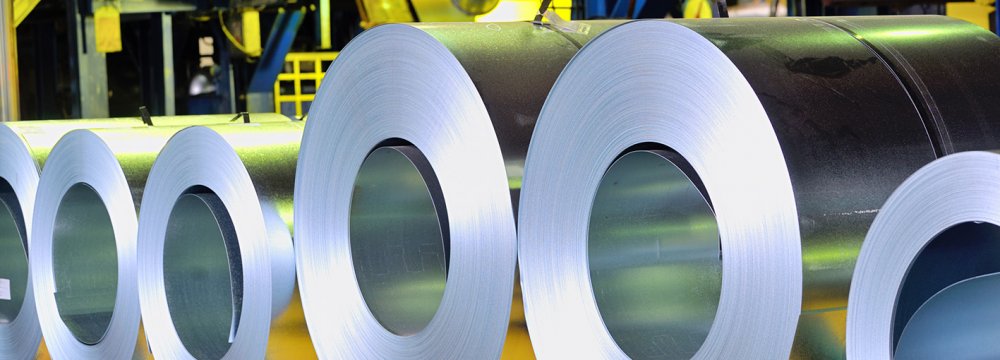
Iran Flat Steel Market Remains Sluggish

Iran’s national currency, the rial, continued to devalue against the US dollar, which made import prices less attractive compared to domestic ones.
On Wednesday, $1 was equivalent to 36,567 rials, while on January 17, $1 was equivalent to 36,461 rials, as per the official rate announced by Oanda.com.
In the free market, $1 was traded at 45,450 rials on Jan. 24, against 44,450 rials a week earlier.
Iranian customers partially use the free market rate to import material due to the reduced availability of the US dollar at the official rate.
Metal Bulletin’s price assessment for imported 2 mm hot-rolled coil in Iran was $560-580 per ton CFR Iranian ports on Jan. 24, compared with $570-580 per ton CFR a week earlier.
Offers of Russia-origin HRC (which are offered in euros rather than dollars) kept stable at €470-475 ($577-583) per ton FOB Astrakhan.
The estimated cost of freight to the north of Iran is $35 per ton, which would be equivalent to $612-618 per ton CFR.
Additionally, Iran has a 9% VAT and 10% import duty on HRC with 2 mm thickness and 15% import duty for thickness of 2.5 mm and above.
Concurrently, local HRC was traded at 27,500 rials per ton ex-works, equivalent to $605 per ton ex-works, including 9% VAT.
The price of €400 ($490) per ton FOB Astrakhan would be workable for Iranian customers now, sources said.
No suppliers would agree to sell at such a price, however, considering they could achieve sales at higher prices to other destinations.
The assessment for imported cold-rolled coil in Iran narrowed to $610-630 per ton CFR on January 24, compared with $595-640 per ton CFR last week.
Offers of Russian material were heard at €510 ($626) per ton FOB Astrakhan, equivalent to $661 per ton CFR.
As no bookings were heard for HRC or CRC this week, the Metal Bulletin assessments are based on the average between the offers and bids.
In the local market, CRC was traded at 29,000 rials, $638 per ton ex-works, including 9% VAT.
Import CRC is under 10% duty in Iran.


Trump weighs using $2 billion in CHIPS Act funding for critical minerals

Codelco cuts 2025 copper forecast after El Teniente mine collapse

Electra converts debt, launches $30M raise to jumpstart stalled cobalt refinery

Barrick’s Reko Diq in line for $410M ADB backing

Abcourt readies Sleeping Giant mill to pour first gold since 2014

Nevada army depot to serve as base for first US strategic minerals stockpile

SQM boosts lithium supply plans as prices flick higher

Viridis unveils 200Mt initial reserve for Brazil rare earth project

Tailings could meet much of US critical mineral demand – study

Kyrgyzstan kicks off underground gold mining at Kumtor

Kyrgyzstan kicks off underground gold mining at Kumtor

KoBold Metals granted lithium exploration rights in Congo

Freeport Indonesia to wrap up Gresik plant repairs by early September

Energy Fuels soars on Vulcan Elements partnership

Northern Dynasty sticks to proposal in battle to lift Pebble mine veto

Giustra-backed mining firm teams up with informal miners in Colombia

Critical Metals signs agreement to supply rare earth to US government-funded facility

China extends rare earth controls to imported material

Galan Lithium proceeds with $13M financing for Argentina project

Kyrgyzstan kicks off underground gold mining at Kumtor

Freeport Indonesia to wrap up Gresik plant repairs by early September

Energy Fuels soars on Vulcan Elements partnership

Northern Dynasty sticks to proposal in battle to lift Pebble mine veto

Giustra-backed mining firm teams up with informal miners in Colombia

Critical Metals signs agreement to supply rare earth to US government-funded facility

China extends rare earth controls to imported material

Galan Lithium proceeds with $13M financing for Argentina project

Silver price touches $39 as market weighs rate cut outlook

















